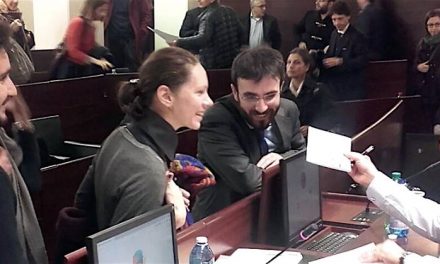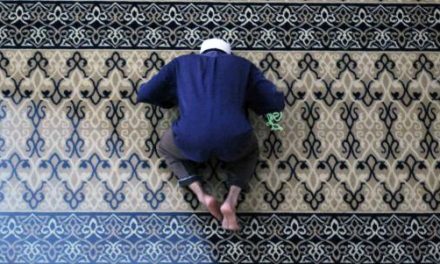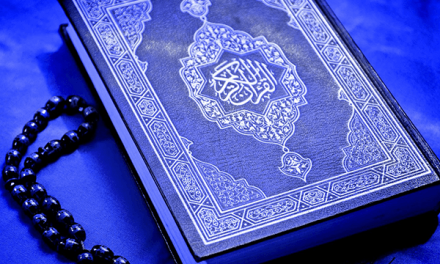
Deliberation (Ijtihad) is a necessary practice for Scriptural interpretation and juridical analogy. However, there is a difference of opinion among jurists as to whether deliberation was practiced by the Prophet, himself. The majority of jurists approved the idea of Prophetic deliberation but had several different opinions about its scope and the possibility of error. This article supports the view of Prophetic deliberation, attempts to define its scope, and discusses the issue of error in relation to the concept of Prophetic infallibility. The presented analysis is used to outline criteria to differentiate between the changeable and the absolute in the Islamic Jurisprudence based on what was subject to Prophetic deliberation and what was not, respectively.
Prophetic Ijtihad?
The concept of the human nature of the Prophet of Islam is confirmed in numerous ways in the Quran.Thus, there is no apparent reason why the Prophet of Islam would not deliberate juridical matters, as do scholars. However, Literalists and a number of jurists from a variety of Schools of Thought have maintained that the view that the Prophet made deliberation is unfounded. In the following, I critically present their main arguments.
-
Rulings based on deliberation are uncertain whereas the Prophet had means of certainty through the revelation. The analogy here is that a Muslim who is able to seek the direction of prayer (towards Mecca) with certainty is forbidden from blind guessing.
This argument is unjustifiable since the Prophet’s description of the revelation implies that it did not take place as an immediate response to his requests but rather as an occasional contact initiated by The Angel. However, numerous narrations show the Prophet spontaneously responding to people’s questions and requests, obviously based on the knowledge he already had.
-
The Quran states that the Prophet speaks out of inspiration that is revealed to him. Therefore, whatever he utters is a revelation and he is not supposed to convey anything according to his own mind.
This interpretation of the verses, as popular as it is, is contrary to the fact that the Prophet used to talk about his worldly affairs that are certainly not part of the revelation. Moreover, the context of the verses is clearly about conveying the Script of the Quran itself rather than everything that the Prophet utters. Deliberation in that sense would be an interpretation on the Prophet’s part, rather than an alteration of the text.
-
It is narrated that the Prophet would sometimes defer the answer of certain questions until he “asks The Angel”. Therefore, he never deliberated answers on his own.
Despite the correctness of the premise, the conclusion is not necessarily true. In the few situations when the Prophet decided to wait for the revelation, he would judge – after some contemplation – that the circumstances are new and that he cannot answer on his own. In that sense, his decision to wait for the revelation is actually another form of his deliberation.
Therefore, the arguments presented above against the idea of Prophetic deliberation do not hold. In fact, juridical deliberation is a major Islamic duty that is an integral part of the Islamic jurisprudence. Hence, it is essential that the Prophet practices it and sets an example for scholars after him.
Prophetic deliberation and the issue of infallibility
There is another debate among scholars on whether the Prophetic deliberation was subject to error or not. Although the Quran did correct the Prophet on a number of occasions, some scholars rejected the possibility of erring in the Prophetic deliberation based on Prophetic infallibility (‘Issmah). Most scholars, however, acknowledged the possibility of error in the Prophetic deliberation on the condition that it is corrected immediately.
The word ‘Issmah (literally: protection) is mentioned in the Quran in the context of the Prophet being protected from people’s whims and Satan’s delusions while he conveys the message of God. The protection of all prophets in the above sense is an Islamic belief, which is a precondition to trusting the prophets’ message and following their example. However, the Islamic definition of “infallibility” does not necessarily include protection from forgetting or misjudgment in matters that are not part of conveying the message. Therefore, I choose the view that acknowledged erring in the Prophetic deliberation but believed that a divine correction would happen next.
However, the Hadith of the pollenating of the palm trees shows one such error that was discovered later due to human experience rather than the revelation! I believe that the rationale behind this Hadith is to show that it is not part of the Prophet’s mission to contribute to “technology” through the revelation. Rather, the human empirical experience is meant to be the only means for technological development. The Prophetic contribution through the revelation would nevertheless be in the domains of belief, spirituality, ethics, epistemology, and jurisprudence.
Areas of Prophetic deliberation
Although mainstream scholarship supports the view of Prophetic deliberations, most scholars restrict it to one of the following areas.
-
Worldly affairs: Although the Quranic verses correcting the Prophetic warfare resolutions are clear evidence for his deliberations in legal matters, many scholars categorize them as deliberations in “worldly affairs” only. The Quranic command of consultation (Shura) is also claimed to be restricted to the same category although it is a clear evidence for unrestricted collective deliberation. There is also evidence for the Prophet’s deliberations in clearly religious matters like pilgrimage rituals.
-
Interpretation of the Quran: Since “only God knows its interpretation”, many scholars have suggested that the Prophet had his own interpretation of the Quran, in which he is corrected if he errs.
-
Analogy: Evidence from the Hadith not only suggests that the Prophet used analogy for juridical deliberation but also taught his companions how to do so.
-
Applying the general principals where there is no specific Scriptural instruction: The Prophet mentioned that he gives his own opinion when he does not have a specific revealed ruling.
Based on the above evidence, there is no point in restricting the Prophetic deliberation, or scholarly deliberation in general, to one or some forms. However, this paper proposes that there is a fundamental core of Islam that is not subject to “earthly” deliberation, even from the Prophet himself. Suggesting a “heavenly” – and therefore absolute – nature of a part of the Islamic Jurisprudence is certainly based on a belief that Islam is a message from God! However, from a functional point of view, a core-versus-peripheral classification of the rulings is necessary for maintaining the Islamic Jurisprudence’s identity (through preserving the core rulings) while managing to achieve a degree of flexibility (through making the peripheral rulings subject to circumstances).
Taxonomy of the Prophetic deliberation
Following is a taxonomy I am suggesting for the categorization of the Prophetic tradition in terms of what was subject to Prophetic deliberation and what was not.
It is proposed here that the Prophet was merely conveying the message of Islam in terms of the Quranic Script, the foundations of belief, and the basic moral values. Moreover, there are certain “pure acts of worship” in Islam that the Prophet was taught precisely without room for his deliberation, such as the timings and specific rituals of the daily prayers, the practice of fasting, or the prohibition of certain types of food, etc. These are the areas of “the absolute” in the Islamic Jurisprudence.
Nevertheless, the term “pure act of worship” has been misused by jurists to justify certain rulings as unchangeable and absolute. The following are suggested criteria to define what could be included under “pure acts of worship” and, therefore, not to be subject to further deliberation or change with circumstances.
-
A pure act of worship is a ritual that is solely for God, versus people. Shatibi used this criterion to define pure acts of worship but restricted it to rites (‘Ibadaat) and excluded dealings (Mu’amalaat). I do not agree with this restriction because I think that there are some dealings that are also meant to be pure acts of worship.The criterion by which we can differentiate these rituals is that people do not have the right to exempt a Muslim from them. For example, the annual charity (Zakah) is a pure act of worship, even though it is meant to have a social impact, because the rich have to pay it even if the poor are to exempt them from it.
-
A pure act of worship could also be a ruling with a “non-comprehendible rationale,” as Shatibi suggested. He further elaborated: “We cannot make analogies with such rulings because we cannot comprehend their logic.” So, the human lack of knowledge is used here as a justification for literalism! An example would be the strict Quranic prohibition of pork meat, dead animals, and gushing blood even if they were to be experimentally purified from any “harmful ingredients.”
Other than the above; namely, the Script of the Quran, the foundations of the Muslim faith, the basic Islamic moral values, and the pure acts of worship, the Prophet was practicing deliberation in various ways. It is the jurists’ duty to follow the Prophet’s example in order to maintain the foundational Islamic objectives and values with changing circumstances.
The Prophetic tradition shows that the Prophet dealt with two areas of deliberation, one where he had a specific Script or revelation and the other where he did not have any specific revelation. In the later case, the Prophet used to apply the default (Arabic) cultural practice or, otherwise, a fundamental moral value as rationale for his judgment. The practical implication of this classification is that the Prophetic deliberation having no direct relation with the Script is subject to change according to change in any underlying circumstances while the rulings that are clearly spelt out to him are not subject to that change. For example, the system of family laws that the Prophet implemented based on specific Quranic instructions, such as women’s right for divorce, financial support, etc., is not subject to change with social changes. However, the Prophetic decisions regarding the amount of dowries, announcing marriages via a certain number of witnesses, delegating a male relative to carry out the marriage contract on behalf of the bride, etc, were not based on a specific revelation, and hence, could change with culture. Another example is the Quranic prohibition of usury and bribes and the obligation of annual charity (Zakah) versus the Prophetic regulation of land trade, irrigation and rentals, the latter of which was only meant to enable production and social welfare in ways that were consistent with the environment. The former group of rulings is the (absolute) core of the Islamic financial system while the later could change as geography, economy and technology change. Moreover, “rulings” that were mere Prophetic approvals of default Arabic cultural practices or community rules could be changed to the default non-Arabic cultural practices in other environments. The only stipulation here is that these practices should not violate the “absolute” Islamic rulings and principals; the stipulation set by the Prophetic example itself.
Conclusion
Based on the presented study on Prophetic deliberation, this paper suggests that the area of the “absolute” in the Islamic Jurisprudence be limited to the areas that were not subject to Prophetic deliberations; namely, the Script of the Quran, the foundations of the Muslim faith, the basic Islamic moral values, and the pure acts of worship. It also suggests that the Prophetic deliberations in the areas of applying the Scripts, implementing fundamental moral values, and approving local traditions should be subject to changes with the change of culture and environment as long as they do not violate any Islamic principal.
The “absolute” rulings are meant to be the constant foundation of the Jurisprudence and the common identity of Muslims in all contexts. On the other hand, the “changeable” rulings are meant to be the source of flexibility in the Islamic Jurisprudence that allows its implementation in non-Arabic environments.






